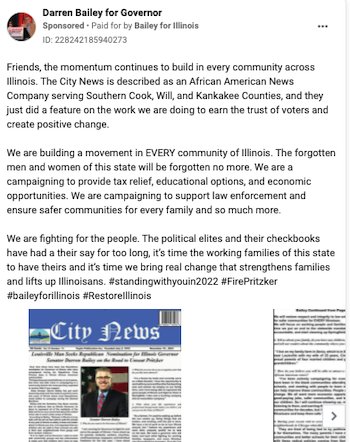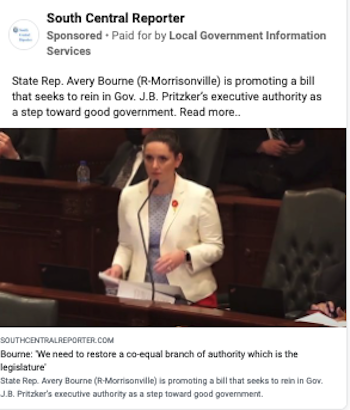* Jason Meisner and Annie Sweeney at the Tribune…
The announcement earlier this month of a [federal] racketeering indictment charging the Wicked Town gang faction with 19 of those killings was the latest in a concerted push by federal investigators to go after those believed to be driving the gun violence in Chicago, which has reached levels not seen in years. […]
At the core of each indictment, though, is a common theme: That much of today’s violence is being driven not by sophisticated drug trafficking enterprises but by gang factions trying to boost their group’s reputation on the street or on social media, creating a seemingly endless cycle of shootings and retaliation. […]
“We’ve seen the gangs change and shift,” [US Attorney John Lausch] said. “They’re more factionalized. … When we’re looking at the drivers of violence, we’ve seen a lot of it relate to turf and social media and retaliation upon retaliation. And this is a way from a federal law enforcement standpoint that we can make an impact.”
* From the press release announcing the racketeering indictment…
The indictment alleges that the Wicked Town faction engaged in numerous acts of violence, including at least 19 murders, 19 attempted murders, several armed robberies, and assaults. The gang used threats and intimidation to prevent victims and witnesses from cooperating with law enforcement, the charges allege.
Wicked Town members regularly promoted their violent enterprise on social media, posting comments, photos, and videos to proclaim membership in the gang, taunt rival gang members, and boast about murders and other acts of violence, the indictment states. The gang operated primarily in Chicago’s Austin neighborhood, where members allegedly maintained “trap houses” to store firearms and illegal narcotics, including cocaine and heroin.
18 Comments  
|
Question of the day
Monday, Nov 29, 2021 - Posted by Rich Miller
* Sen. Darren Bailey chatted recently with Quad Cities TV news person Jim Niedelman about his political career to date…
Just three short years ago whenever Cindy and I decided to step up for this journey, it was because we as normal Illinoisans are fed up, we’re tired and we’re concerned about the future for our children.
That got me to wondering what “normal” is.
* The Question: Do you consider yourself to be a normal Illinoisan? Explain.
78 Comments  
|
A look at campaign Facebook spending
Monday, Nov 29, 2021 - Posted by Rich Miller
* From the Center Square…
It’s not fake news, but social media ads funded by Gov. J.B. Pritzker could still fool some users.
Illinois gubernatorial candidates are expected to use traditional media like TV and radio to get their message out. But, millions have already been spent on social media outlets such as Facebook, mostly by Pritzker.
Since 2018, a Facebook page for “JB Pritzker” has spent more than $3.6 million on ads, $271,000 of which Facebook notes ran without a disclaimer.
Reform For Illinois Executive Director Alisa Kaplan said there is additional spending.
“Social media, in particular, can be a little deceptive in how ads are presented,” Kaplan said. “Some of the Pritzker ads for example are presented as news pieces.”
* Here’s one of the ads featured in the above story…

And if you click that image, it takes you directly to the Tribune column. Seems like the usual stuff you’d see in TV ads, only interactive. Labeling it “Illinois Daily” is a bit much, though.
* While we’re at it, let’s go back to the article to see what else is going on at Facebook…
The lead Facebook spender for the Republicans from the past week was Jesse Sullivan, spending $1,700, though all time Sullivan’s campaign has spent $134,000 in Facebook ads.
Businessman Gary Rabine spent around $480 in the past week and nearly $53,000 all time.
Former state Sen. Paul Schimpf, R-Waterloo, spent about $350 in the past week and $10,500 in total on Facebook.
State Sen. Darren Bailey, R-Xenia, has spent $55,300 all time and just $190 in the past week.
* Some of their ads. Click the pics for more info…




* But then there are ads that perhaps Reform For Illinois and other groups ought to be truly concerned with. We used to call Local Government Information Services the “Proft newspapers,” but whoever the ownership, check out their latest FB ads…




I’m guessing you won’t see that in Center Square.
15 Comments  
|
* Subscribers were just sent an interview with Leader Harris…
Following 15 years of service as a state representative, Majority Leader Greg Harris announced he will not seek re-election to the Illinois House of Representatives.
“When I stepped into this office 15 years ago, I was committed to making change. I wanted to improve the lives of LGBTQ folks, support our immigrant community, increase the diversity of our caucus and fight for those who for so long have been ignored. As I look back at my time in Springfield, I can confidently say that I was fortunate to do that and more. Therefore, while I will finish the rest of my term and continue leading our caucus through the annual budget process, I will not be seeking re-election,” said Leader Harris.
Harris is leaving office with a litany of legislative achievements to his name. Harris was the chief sponsor of the law that delivered marriage equality throughout Illinois. Following this, Harris became the first LGBTQ person in Illinois history to be in legislative leadership. Additionally, despite Gov. Rauner’s heartless efforts, Harris successfully protected funding for critical human services programs. Early in his tenure, Harris successfully spearheaded legislation reducing economic disparities in mammograms and breast cancer treatment. He is also credited with numerous laws cutting red tape in Illinois’ health care system and lowering the costs of prescription drugs.
“As a proud member of the Democratic Caucus, I can say we stood together and worked toward change over the course of eight General Assemblies, four Governors, two recessions and a global pandemic. I am proud to have worked with dedicated colleagues, staff and activists. I am immensely proud to have served with Speaker Welch, our state’s first African-American Speaker. And finally, I’m most proud to have served my district and demonstrated that good government matters—that, with thoughtful policy, we can improve lives and make a more just society together,” said Leader Harris.
Other major bills Leader Harris has sponsored include:
· Legislation providing that Transgender Illinoisans can correct their birth certificates;
· Legislation preventing consumer reporting agencies from imposing a fee for credit freezes;
· Legislation reforming anti-consumer practices in prescription drug pricing.
“I’m making this announcement now so people considering running for office have time to think and prepare. There is much more to accomplish and we have a young, diverse group of leaders who are ready to take the reins and lead. It’s time to give them the opportunity to do so,” said Leader Harris.
“I want to thank my colleagues—on both sides of the aisle—who have worked tirelessly alongside me. I have learned many lessons, created countless memories and cemented life-long friendships. This has been an honor of a lifetime, so thank you,” said Leader Harris.
* From House Speaker Chris Welch…
Greg Harris embodies public service, and throughout his fifteen year career he has been a passionate advocate for what’s fair and just. His command of a wide range of public policy issues, particularly Medicaid and our state budget, has been such a vital asset to the entire state. Greg led the way to deliver marriage equality, protected social service programs during the budget impasse and helped lower medical costs for everyday families. As a values-oriented leader and as the first openly gay majority leader, Greg has given a voice to so many who have continuously felt left out of state government. I am grateful for Leader Harris’s support as I’ve navigated my first year as Speaker. I look forward to his continued guidance throughout the 102nd General Assembly, but I will forever be blessed to call him a friend.
…Adding… Greg Hinz…
Harris not only lasted through the politically rough final years of Madigan’s reign without tarnishing his reputation or being caught in continuing legal probes into the former speaker, he was held over as majority leader by Madigan’s successor Emanuel “Chris” Welch.
Harris’ forte has been budgets and fiscal matters. But as the highest-ranking openly gay person ever to have served in state government, he says his proudest accomplishment was serving as chief sponsor of the bill allowing same-sex marriage in the state, an action that came years before the U.S. Supreme Court mandated that nationally.
Harris also lists as top accomplishments helping break the budget impasse in which former Gov. Bruce Rauner tried to slash state spending on social programs, something Rauner said was needed but Democrats bitterly opposed.
I’m remembering it differently.
…Adding… DPI…
Democratic Party of Illinois Chair Rep. Robin Kelly released the following statement regarding the news that Illinois House Majority Leader Greg Harris will retire at the end of his current term:
“Greg Harris represents the very best of Illinois. His fearless advocacy and commitment to service on behalf of the people of his district and the entire state sets an example that the rest of us can only hope to follow. From healthcare to LGBTQ+ rights to the state budget, Leader Harris consistently demonstrated an unparalleled command of policy and the legislative process that will be deeply missed in Springfield. And he did it with humor and a warm demeanor that brought people together in common cause. Because of Greg Harris, our state is a better place for all its residents. Congratulations, Leader Harris, it was an honor to serve with you and I wish you well in the next chapter of your life!”
…Adding… Terry Cosgrove…
Greg Harris is a hero to many of us for a long list of reasons. Had I called central casting and asked for a legislator who embodies all the best qualities, I would have been sent Greg Harris. It has been my honor and privilege to learn from and work with him over the past 15 years. And now his retiring responsibly should come as no surprise.
20 Comments  
|
|
Comments Off  
|
* Block Club Chicago last week…
Chicago Public Schools knew about allegations of sex abuse at a Logan Square school for years — and the district recently promoted a principal who knew about the abuse and did nothing to stop it, records show. […]
An explosive inspector general report Friday revealed wide-ranging sexual abuse and a cover up at Marine Leadership Academy. The report describes sexual abuse and inappropriate contact between students and teachers, the “grooming” of students who later had personal relationships with staffers upon their graduation, sexual harassment and retaliation. The report also alleges those in charge attempted to cover up this behavior.
* Also from Block Club Chicago…
A state bill aimed at closing a loophole that doesn’t criminalize some sexual misconduct in schools could soon become law after two years of advocacy — and as a sexual abuse scandal unfolds at a Logan Square school.
The bill — HB1975, also known as Faith’s Law — was sent to Gov. JB Pritzker’s office Monday, just days after a Chicago Public Schools inspector general report exposed sexual abuse, misconduct, harassment and grooming at Marine Leadership Academy in Logan Square. […]
The bill, filed by Rep. Michelle Mussman, a Democrat representing suburban Schaumburg, would expand the state’s criminal code to make it illegal for school employees to groom students for sexual relationships. It also increases protections for sexual abuse survivors and their families.
Grooming in Illinois law is defined as luring a child into unlawful sex using the internet. The bill would update the definition to include in-person interactions and written communication, said Faith Colson, the bill’s namesake. Colson was sexually abused by a teacher about 20 years ago while in high school in Schaumburg. […]
CPS CEO Pedro Martinez pointed to the current law last week as one of the major challenges of the Marine Leadership Academy case. Multiple adults groomed students for sexual relationships, but, in some cases, there was no indication sex acts occurred until students graduated and were legally adults. That meant there is little recourse to prosecute them, Martinez said.
The bill is expected to be signed into law.
* From this past March…
In 2001, Faith Colson was a 17-year-old student at Schaumburg High School, where she was a varsity athlete and a good student with lots of friends. But something else was happening to Colson: She was being groomed by a teacher to be sexually manipulated.
There were warning signs, Colson and others said in police interviews years later that led to the arrest and 2019 guilty plea of former teacher Ronald L. Williams on charges of criminal sexual abuse.
Other teachers recalled hearing about the inappropriate relationship, including one who said Williams told him about it, according to police reports from 2018.
This is where Colson believes the problem lies, and it’s why she has worked with state Rep. Michelle Mussman, a Democrat from Schaumburg, to write legislation, HB 1975, known as Faith’s Law.
The bill is here.
5 Comments  
|
* Peter Hancock at Capitol News Illinois…
Lawyers for the General Assembly’s Democratic leaders filed documents in federal court Wednesday denying that newly drawn state legislative district maps amount to racial gerrymandering, instead accusing the plaintiffs in the three lawsuits of trying to use race to redraw districts for their own purposes.
Wednesday’s filings are the Democrats’ response to proposed changes in the district maps submitted last week by Republican leaders, a Latino advocacy group in Chicago and Black civil rights groups in the Metro East region. […]
“The September Redistricting Plan … protects minority voting strength and provides Hispanic and Black voters more than an equal opportunity to elect candidates of their choice,” their brief states. “The three plaintiffs have failed to provide evidence to support otherwise and have not demonstrated that the September Redistricting Plan violates the Voting Rights Act or the U.S. Constitution.” […]
“The General Assembly, understanding the different political factions in this area [Chicago’s Southwest Side], worked to carefully balance the interest of progressive and moderate factions in separate Senate and House districts to reduce political infighting among Latino groups,” lawyers for the Democrats wrote.
* As subscribers already know, the filing is long, but well worth a read. For instance, here is just one of several examples of what the Republican proposal would allegedly do…
The McConchie plan makes additional, unnecessary changes to districts not subject to challenge that result in packing minorities and Democrats in several districts. HDs 35 and 36 both currently represented by Democrats. The plan would swap precincts between the two districts such that HD 35 becomes the most Republican district in Chicago.
That’s Rep. Fran Hurley’s district.
* One more…
Plaintiff Republican Leader Durkin’s District. Finally, the McConchie plan’s attempt to proclaim themselves the champions of minority interests are compromised by engaging in a brazen racial gerrymander to create a whiter district for named Plaintiff Republican Leader Jim Durkin. In HD 82, the plan swaps Black and white populations between three districts. White precincts in Proviso Township and Lyons Township are moved into HD 8, a district with a Black incumbent, to reduce the Black VAP of HD 8 from 49.51% to 48.29%. Maxson Decl., Ex. A. Several diverse precincts in Lyons Township are moved from HD 82 into HD 21, and the population loss in HD 82 is replaced by adding white precincts from Palos Township. The changes to Plaintiff Republican Leader Durkin’s district are blatant racial gerrymanders that have the result of creating a whiter district, and therefore more politically stable, district for Rep. Durkin.
* And a sampling of what the Democrats say about the MALDEF proposal…
Little Village and Chinatown Communities of Interest. Similar to the McConchie plan, the Contreras plan splits Little Village between three House districts (HDs 21, 23, and 24) and two Senate Districts (SDs 11 and 12), and removes a Latino incumbent from the core of his current district. The Plan fractures the political base for progressive Latinos in Little Village and alters the delicate balance between the moderate and conservative factions in the area.
The Plan also splits the greater Chinatown community between two House Districts (HDs 23 and 24) while pairing the greater Chinatown community and a portion of Little Village in HD 24, which pits two significant political bases against each other and reduces the Asian American influence in the district. Historically, the 11th Ward which contains much of the greater Chinatown community and the Little Village neighborhood (Wards 12 and 22) often support different candidates, and it’s highly unlikely that these communities would coalesce around one candidate of choice. This map creates a situation where candidates would be encouraged to cater to their own political bases at the expense of districtwide representation.
Again, click here to read the rest.
6 Comments  
|
* Jesse Sullivan on Fox News over the weekend…
And you know what, I know what it takes to serve the people of Illinois and protect them, make the city streets safe again. And you know what, speaking of Glenn Younkin, and what he did over in Virginia, well, his team could choose to work with anyone in the entire country and they chose to come and work with me and are going to be helping us win this victory in Illinois.
* Politico today…
Kristin Davison, who most recently worked on the GOP governor’s race in Virginia, has joined Illinois Republican Jesse Sullivan’s gubernatorial campaign. Davison was senior strategist for Glenn Youngkin, who defeated Terry McAuliffe to take the Virginia governor’s mansion, handing Democrats a stinging loss. Along with Davison, Poolhouse media agency, which also worked with Youngkin’s campaign, is on Sullivan’s team, too.
Poolhouse designed Youngkin’s logo. Davison is with Axiom Strategies, which provides a menu of services for campaigns, particularly those with money, and Sullivan does have cash.
* Davison was integral to Youngkin’s win and she has talked about it several times since then. One example…
First, I think it was a textbook example of the theory that candidate quality matters. We started with a once-in-a-generation talent in Glenn. He — you know, what you see is what you get. He’s a genuine guy with a positive, upbeat attitude all the time who really wanted to focus on a positive, unifying campaign. So when you have that foundation, I think [that’s] an advantage to start.
Then, the strategy: From day one, we didn’t run to win a convention and lose a general election. We started very early to reach out to different voting groups that haven’t been Republican ever or haven’t been Republican in a long time; starting different coalitions back in February — African-American Virginians, Asians, Hispanics, women — and then focusing the race on Virginia and what families were talking about at their kitchen tables, not what the talking heads were talking about on TV.
I think the third takeaway that helped drive this home: We had an opponent who focused on every political talking point the DNC probably gave him. And Glenn stayed focused on things like cost of living, education and safety — [which] were on the forefront of conversations that families were having every day.
* She also has some Illinois experience, which didn’t turn out so well. Here’s the McHenry County Blog…
McHenry County voters have seen Kristin Davison’s handiwork in Illinois before, as recent as the 2020 election cycle when she was the general consultant for then IL-14 Republican candidate Catalina Lauf (R, Woodstock).
Davison also organized in December of 2019. the short-lived “Stop The Squad” slate uniting Lauf with Anna Paulina Luna (R, FL-13), Lisa Song Sutton (R, NV-04) and others, covered on McHenry County Blog nearly two years ago.
As many local Republican activists are aware, Axiom Strategies was trying to recruit young, attractive minority women to seek election to Congress for the 2020 election cycle, and Stop the Squad slate was a result of this recruitment effort.
Only two of the original Stop the Squad slate members won their respective Republican nominations, and none won election to Congress last year.
Lauf lost the primary to Jim Oberweis.
* Back to Sullivan’s Fox News interview. It focused on Chicago crime, of course…
Blood on the streets of Chicago every single day. Look, I’ve lived and worked in some of the most dangerous, corrupt violent cities across the world, from Port au Prince, Haiti, to Helmand, Afghanistan. And it pains me that this home that I love so much, Illinois and this great city of Chicago, it’s now become a corrupt warzone. Why? Because our political leaders have failed us. They want to separate this out into blue lives, verse Black lives. It’s not only wrongheaded, it’s dangerous because the truth is 95 percent of all of those violent deaths that have happened, the victims are minority communities, our Black and Brown brothers and sisters. I listen to those gunshots happen on the streets of Chicago and it brought me right back to Helmand, Afghanistan. And it’s wrong and our political leaders need to step up and quit prioritizing criminals and putting them before victims and police
* On challenging Gov. Pritzker…
Nobody creates a better contrast with JB Pritzker than me. You know, JB Pritzker was born in California with a silver spoon in his mouth. He’s one of the wealthiest governors in the country. But you know what, he’s morally bankrupt. And the people of Illinois know that. Whereas I was born in central Illinois with a set of values of faith and family and service. And I grew up working on a farm, and I’ve earned everything that I have. JB Pritzker, he wants to raise taxes on the people of Illinois, whereas I want to lower taxes. I’ve worked with Alter to create jobs around the world to back entrepreneurs. I know what it takes to make Illinois a business-friendly state. JB Pritzker, he doesn’t know the first thing about what it means to protect and to serve. It’s the reason he’s not backing are law enforcement falls back on these, you know, Democrat talking points of blaming guns, and throwing money at the problem through social programs, not actually backing and supporting our police. I’ve served over in Afghanistan. And you know what, I know what it takes to serve the people of Illinois and protect them make the city streets safe again.
He never actually says what he’ll do, however. We hear this a lot. One 2016 presidential candidate claimed the problem could be solved in a week with unspecified tougher police tactics.
101 Comments  
|
* There’s more to this Mark Maxwell interview of former Gov. Jim Edgar, so make sure to read the rest…
“Yeah, we’re a year-and-a-half in, but a lot of these decisions had to be made very quickly, because nobody knew what the impact was going to be,” he said, adding that he doesn’t fault Pritzker.
“Now, we can have a debate about what we could and couldn’t have done differently. And I think there should be once we’re done with the pandemic,” he said. “I don’t think we’re quite done, though. I think we’re getting close. If people would just get vaccinated, I mean, this thing could be behind us. That’s the thing that just I cannot understand.”
“I mean, I grew up in the era of polio,” Edgar said. “I mean, we rushed as kids down to get vaccinated and they hadn’t tested that thing. But we wanted vaccinated. We didn’t want to get polio. And so I have a hard time today — maybe I’m just too old. I just don’t understand this hesitancy to get vaccinated, but a lot of people haven’t, so we still have the pandemic hanging around.”
“I do think once it’s done — and I hopefully it’ll be done sooner than later — you take a look at what is the right procedure,” he added. “I don’t begrudge some of the things that Governor Pritzker had to do. You never want to have to… That would have been a terrible thing to have to deal with. Saying that, there is no doubt there is fatigue.”
Edgar says Pritzker could be defeated in the upcoming 2022 election, but only if his party picks an electable candidate who can appeal to a statewide audience beyond the primary.
36 Comments  
|
|
 Support CapitolFax.com
Support CapitolFax.com
Visit our advertisers...
  ...............
...............
 ...............
...............
 ...............
...............
 ...............
...............


|
   
|
Hosted by MCS |
SUBSCRIBE to Capitol Fax |
Advertise Here |
Mobile Version |
Contact Rich Miller
|






















